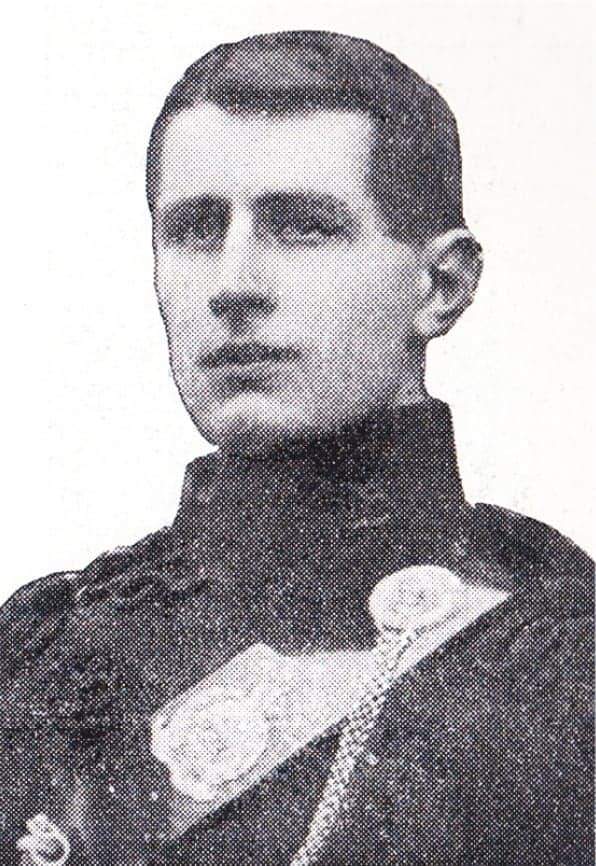
At the outbreak of war in 1914 many local men belonged to the Dorking ‘D’ company of the 4th and 5th Battalions the Queen’s, (alternatively called The Royal West Surrey Regiment). They were Territorials who trained every summer, under their company commander, Captain W. L. Hodges, who in civilian life was a solicitor. Lord Ashcombe was the Battalion’s Honorary Colonel.
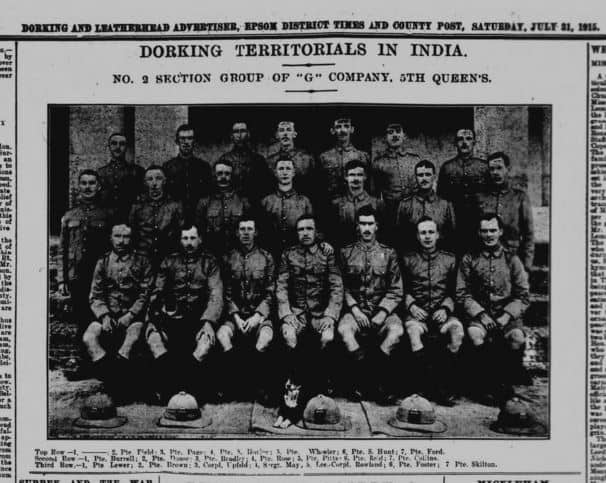
When war was declared on 4th August the company was encamped on Salisbury Plain. The men returned to Dorking and caught the train to Strood near Chatham for training the following day. The Battalion (less older men and teenagers) was then sent to India to replace regular army troops who were brought back for service on the Western Front. They arrived in Bombay in December 1914 and were sent to Lucknow. In December 1915 they embarked in Bombay for the voyage to Basrah (in what was then known as Mesopotamia -now Iraq) which was under attack from the Turks. The older men who were not sent out to India remained at home as an administration section. The teenagers were amalgamated with other youngsters to form the 2nd/4th Battalion and found themselves in Gallipoli in 1915.
From Basrah the men were shipped up the Euphrates to Nasiriyah, where they constructed defences and roads and guarded Turkish prisoners. In January 1916 the company was involved in its first military action near Kut. On their return to Nasiriyah the men received 86 ‘comfort’ parcels from the ladies of Calcutta and 69 tins of plum pudding.
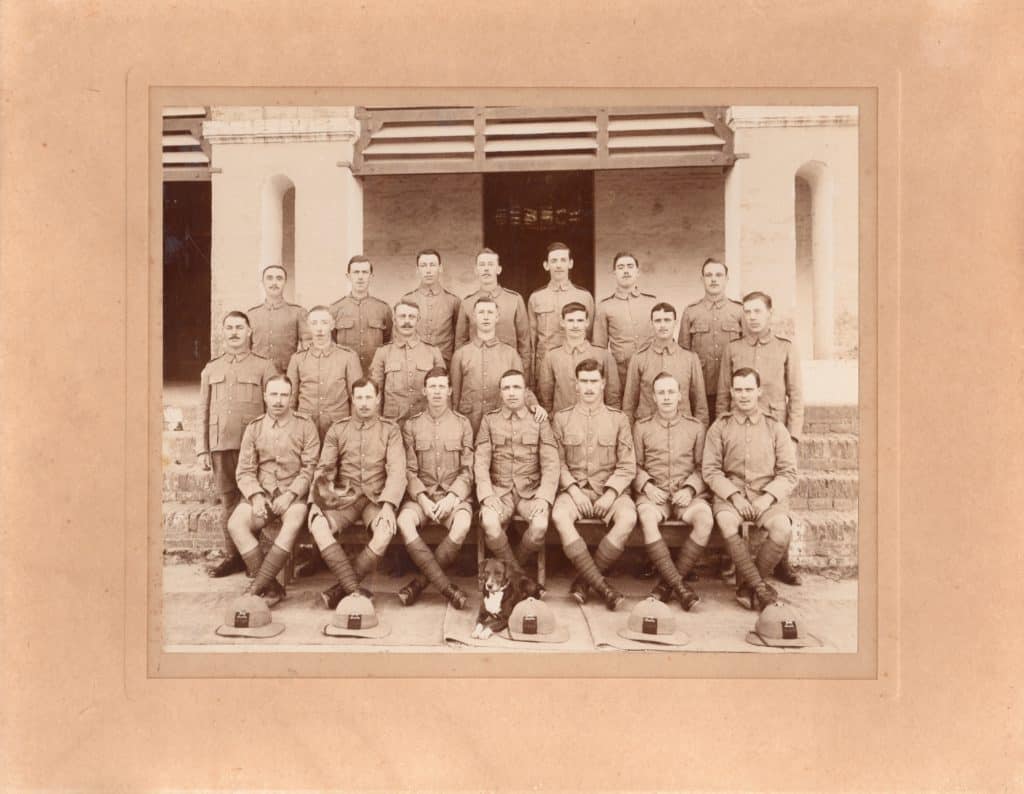
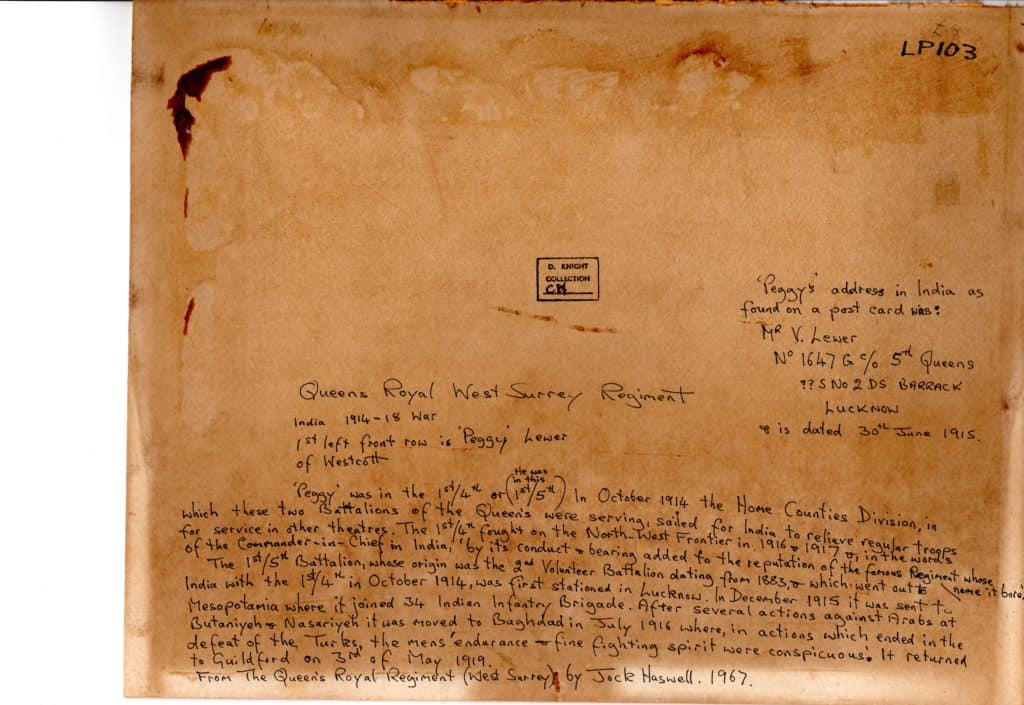
Peggy’s address in India as found on a postcard was :
Mr V. Lever, No. 1647G c/o 5th Queens, ?? S No. 2. DS BARRACK, LUCKNOW
30th June 1915
Queens Royal West Surrey Regiment
India 1914 – 1918 War
“Peggy” was in the 1st/5th [Regiment]
In October 1914, the Home Counties Division, in which these two Battalions of the Queens were serving, sailed for India to relieve regular troops for service in other theatres. The 1st/4th fought on the North-West Frontier in 1916-1917, in the words of the Commander-in-Chief in India ‘by its conduct and bearing added to the reputation of the famous regiment whose name it bore.’
The 1st/5th Battalion, whose origin was the 2nd Volunteer Battalion dating from 1883 and which went out to India with the 1st/4th in October 1914, was first stationed in Lucknow. In December 1915 it was sent to Mesopotamia where it joined 34 Indian Infantry Brigade. After several actions against [the] Arabs at Butaniyeh and Nasariyeh it was moved to Baghdad in July 1916 where, in actions which ended in the defeat of the Turks, the mens ‘endurance and fine fighting spirit were conspicuous.’ It returned to Guildford on 3rd May 1919.
From the Queen’s Royal Regiment (West Surrey) by Jock Haswell 1967.
Conditions in the desert were hard with many deaths from cholera, gastric problems, fevers, and heatstroke in temperatures of 50°. By early 1917 the men were in a poor state of health with 50-80 hospital admissions a day from the Battalion.
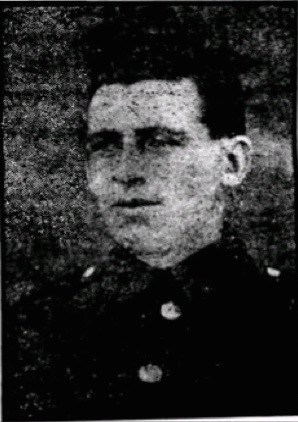
Charles Alfred Upfold, who worked at Brooker’s Timber Yard in Dorking, and William James Razzell, a gardener on the Bury Hill estate, were killed in action near Basrah on 11th September 1916. Nathan Edwards, a carter from Capel, died of heatstroke there the following day.
In June 1917 the company moved to Basrah and then up the Tigris to Baghdad. Ramadi was captured in September and the men spent the rest of the year digging defensive trenches around the town. In 1918 they were engaged in action at Hit, near Fallujah. Many remained in the Middle East until well into 1919, by which time they had been away from home for over 4 years.
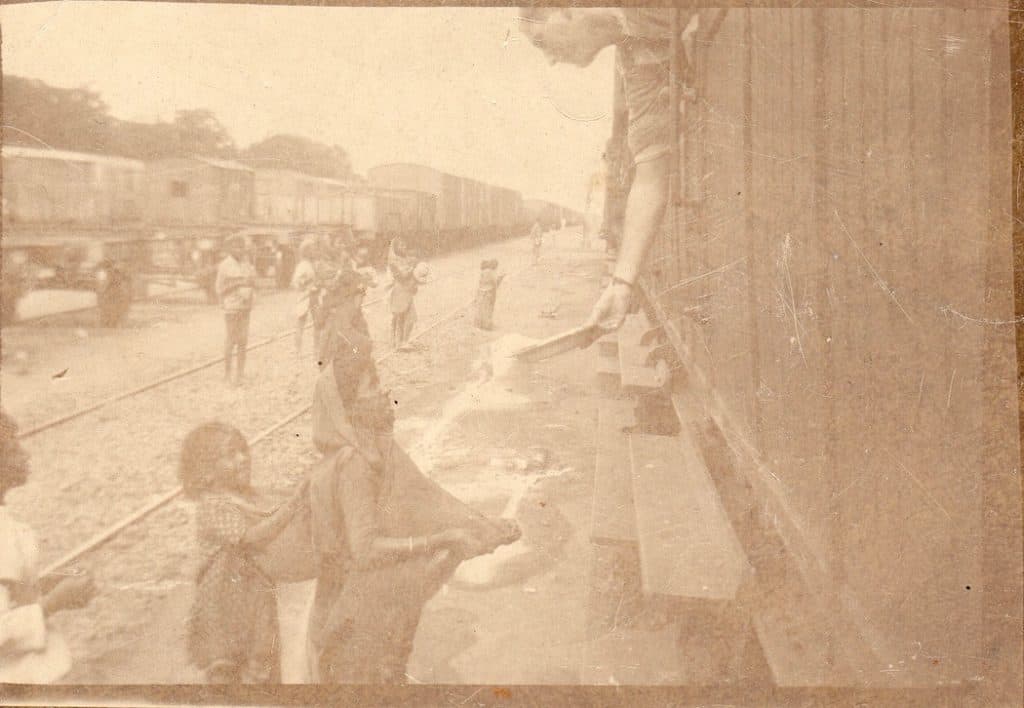
This photo shows Driver Charles Henry Hunt, who worked as a groom at Broome Hall near Coldharbour, giving his rations to local children from a train near Poona in India. Charles was not a member of the Territorials but joined the Royal Engineers in 1915 and reached India via service at Gallipoli, Alexandria and Basrah (Iraq). He died of pneumonia in Poona in March 1919.
Previous Page : Lady Lawrence

